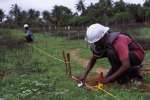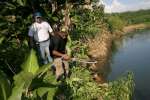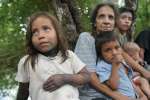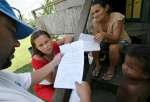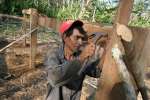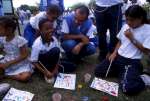- Text size
 |
|  |
|  |
| 
- عربي
UN High Commissioner for Refugees expresses concern over fresh fighting in Colombia
News Stories, 11 June 2015
GENEVA, June 11, (UNHCR) – UN High Commissioner for Refugees António Guterres has expressed concern that renewed armed clashes in Colombia could derail the peace process under way and increase risks for the civilian population.
"After decades of unrest, Colombians, especially the millions displaced, have longed for peace, pinning hopes on a negotiated settlement. Any disruptions in the peace process could jeopardize its chances of arriving at a positive outcome," he said in a statement.
Guterres called on both parties to move forward with negotiations, adding that he hoped that talks, which have been taking place in the Cuban capital Havana since 2012, will soon result in a peace accord.
"Protecting the civilian population from the consequences of conflict is critical to end the loss of human lives. I welcome the recent agreements that aim to establish a truth and justice commission, stop child recruitment and start demining activities in Colombia's Department of Antioquia," the statement noted.
Guterres said progress on key aspects of the negotiation agenda, the agreements reached so far and the participation of victims in the talks were significant achievements that could make the difference between war and peace.
"These steps represent hope and help alleviate the suffering of Colombian refugees and internally displaced people, enabling them to restart their lives in their places of origin, integrate with host communities, or safely relocate to other parts of the country," his statement added.
The High Commissioner said solutions needed to be found to guarantee the safety and dignity of refugees and people displaced inside Colombia and said he was confident the rights of these people would be taken account of in the dialogue.
Stressing that UNHCR remained ready to support the process and draw on its experience with similar peace deals in different parts of the world, he said he hoped the ongoing negotiations would soon lead to a historic opportunity for the country to overcome adversity.
"UNHCR stands by the people of Colombia in their quest to achieve a lasting peace," he concluded.


